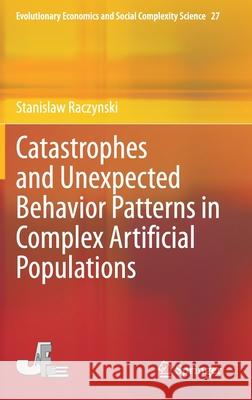Catastrophes and Unexpected Behavior Patterns in Complex Artificial Populations » książka
topmenu
Catastrophes and Unexpected Behavior Patterns in Complex Artificial Populations
ISBN-13: 9789811625732 / Angielski / Twarda / 2021 / 184 str.
Kategorie:
Kategorie BISAC:
Wydawca:
Springer
Seria wydawnicza:
Język:
Angielski
ISBN-13:
9789811625732
Rok wydania:
2021
Wydanie:
2021
Numer serii:
000607004
Ilość stron:
184
Waga:
0.46 kg
Wymiary:
23.39 x 15.6 x 1.27
Oprawa:
Twarda
Wolumenów:
01
Dodatkowe informacje:
Wydanie ilustrowane











